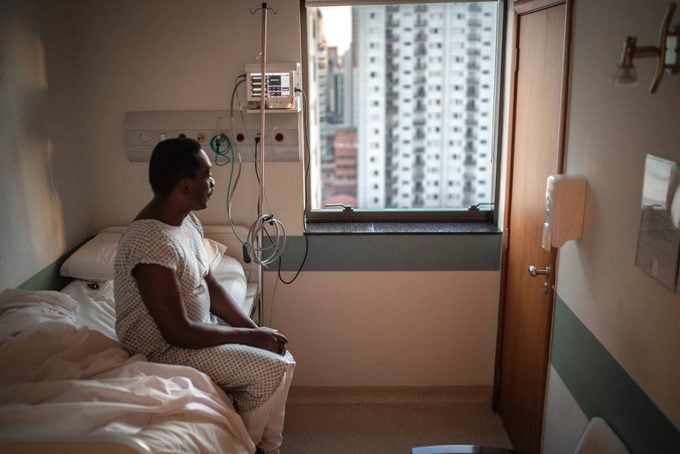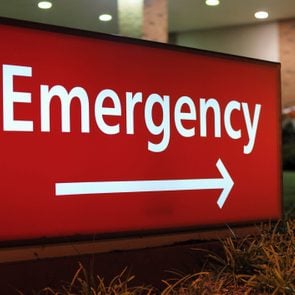Is July Really the Most Dangerous Month to Go to the Hospital?
Updated: Jun. 29, 2022
The "July effect" is based on the idea that July is when new residents start in teaching hospitals. Does their inexperience affect your care?
Our editors and experts handpick every product we feature. We may earn a commission from your purchases.

No one wants to land in the ER. But may have heard that there are worse times of year to end up in a hospital for an emergency.
Some medical experts believe that July is the most dangerous time to be treated in a hospital. It’s even been dubbed the “July effect,” explains Anthony Kouri, MD, orthopedic surgeon at Northwestern Medicine. In July, new medical graduates start their first year of residency or intern year. In addition, current residents move into roles with greater responsibilities, Kouri says. Together, these facts have led to the common belief that hospitals are teeming with inexperience during the month of July.
But, the truth isn’t exactly cut and dried. Daniel H. Pink addressed the July effect in his book, When: The Scientific Secrets of Perfect Timing: “Patients suffered from this on-the-job training—and July was the cruelest month.” Citing research published in 2007 in the Annals of Surgery, Pink notes that “patients in July and August had a 41 percent greater chance of dying in surgery than patients did in April and May.”
And, research from 2010 that examined 25 years’ worth of death certificates around the country suggested that medication errors were 10 percent higher in counties that had teaching hospitals during the month of July, Kouri says.
But, these medication errors aren’t by the hands of “freewheeling interns,” Dr. Kouri says. “In fact, most surgery interns rarely see the operating room. Most mistakes are made on the floor of the hospital where very sick patients are being treated and medication is administered.”
“I have seen countless mistakes made, and I have made many myself throughout my training. However, I have very rarely seen mistakes that have made a measurable difference in a patient’s outcome,” Dr. Kouri explains. “Though they absolutely do happen, and most are avoidable, they are not common. That being said, I would personally have no issue sending my loved ones to a teaching hospital during the month of July.” (Picking a teaching hospital because of their access to cutting edge research is one of the secrets hospitals don’t want to tell you.)
Putting checks in place
Notably, in recent years, teaching hospitals have been actively trying to combat the notion of the “July effect.” According to Pink’s book, at the University of Michigan teaching hospital, new residents are paired with a team of “seasoned nurses and physicians” and by doing so, “hospitals like this one have dramatically reduced the July effect,” Pink wrote.
In a situation like this, other experienced care providers like physicians, senior residents, and nurses point out errors, Kouri says. The resounding conclusion is that time is irrelevant—patients will be safe in a teaching hospital regardless of time, Kouri says. (Instead of worrying about whether July is a good time to go to the hospital, doctors would rather you ask these questions instead.)
“There are multiple checks on each care provider, and even if a small mistake does occur, it will likely not negatively affect the patient. There is a subgroup of very complicated patients who may have a higher fatality rate in the month of July, and those are the people we need to keep a close eye on,” he added.
Is June worse?
Another physician points out that while July has the reputation of being the most dangerous month, another month may actually be worse, in his opinion: Board-certified plastic surgeon, Marc Everett MD, spent nine years in teaching hospitals during his residency and fellowship. “In my opinion, July is not the most dangerous month of the year in a hospital, but June is. In July, faculty awareness is at its peak,” he says. As new residents join and other residents have new responsibilities, their work is directly and thoroughly observed, Everett says.
“In June, however, there is a general assumption that the residents are competent in their 11th month at their level and the work is less stringently overseen,” Everett explained. “The residents are tired, sometimes burnt out, and have not yet been injected with the gusto of a new class year.”
Next up, know these tips for surviving your next hospital stay.



